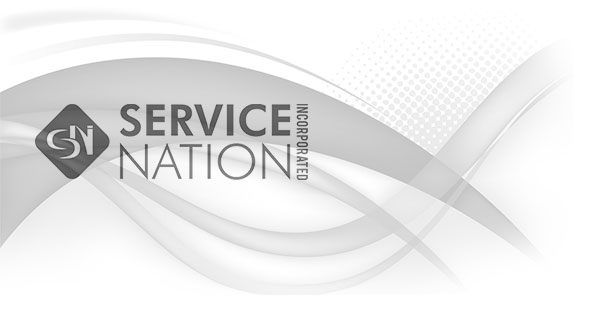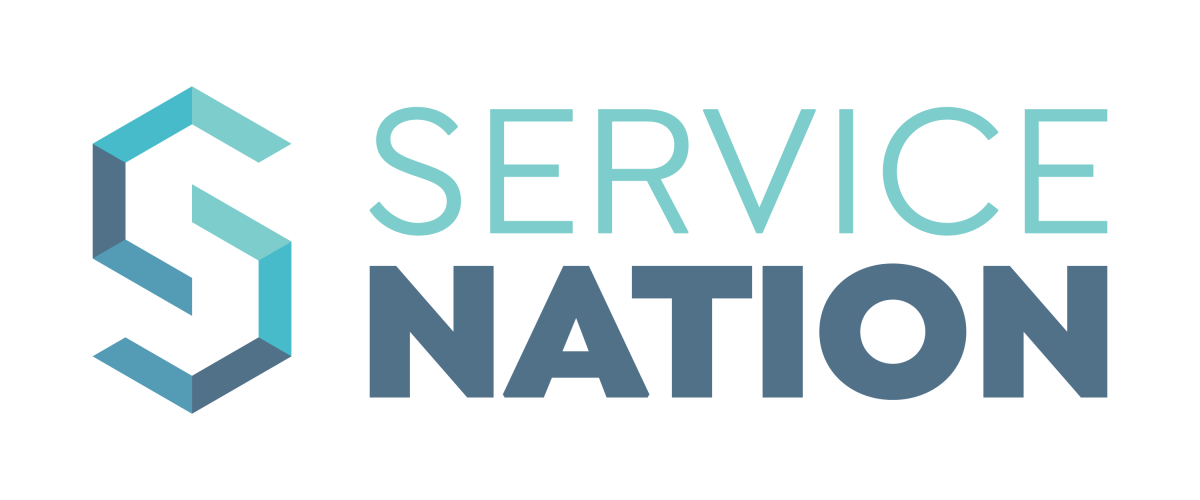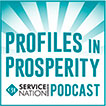Tim Boudreaux: Oh, absolutely. I mean, you know, I wish we could get some trade schools that would start, you know, kind of triaged kids at a younger age, kids that are just not going to go to college. I came from a working-class family and I was always taught to work and college was not on my radar screen and I kind of took like in the heating and air condition business at a young age. It’s a difficult business, but I wish we could make it a little more attractive because it really has been a great career. You know, to raise a family and do the things I wanted to do and never have to be worried about being unemployed because of the oil and gas business or you know, the airline business went south or something; it’s just been an absolutely great career. And I tell people all the time that if you have a kid that is mechanically inclined and he doesn’t know what he wants to do – it’s not easy, it’s hard work. I think the people that are working in industries work very hard for everything they earn, you know, hot attics and tight crawl spaces, but it’s very rewarding and it has been for me.
David Heimer: It is. And I do the same thing you do. I tell people about it. I think I’m a good ambassador to the industry. I tell people about the great career opportunities. I got to tell you, I think very few of them have followed up with me on that.
Tim Boudreaux: Yeah. Well, my son, who is now in the medical field, when he was 14, he came to work for me in heating and air conditioning and decided he wanted to be in the medical field when he got out of high school, so it’s not easy work. He told me, he said, dad, I’ll know what I don’t want to do when I get out of school. I said, all right, that’s good.
David Heimer: So you said you started Tim’s AC in 1983. So, how big was it when you sold it?
Tim Boudreaux: When I sold the business, we were right at about 19 employees full-time. We were doing just a little bit less than $4 million a year in sales. And we service about a 35 to 40-mile radius of the city we’re in Lafayette, Louisiana.
David Heimer: So, who are some of the significant factors that led to the growth of your business? I mean, a $4 million business, that’s a significant business. So, what did you do to get it to grow?
Tim Boudreaux: Well, you know, I had a couple of interesting people that I became a Lennox dealer very early on. I started off in 1983 and in 1985 I went to a seminar called Focus on the Future with Vicki LaPlant, and those guys were just getting started.
David Heimer: You know Vicki works with us now, right?
Tim Boudreaux: Absolutely. I’ve met her. When I went to the onboarding process I got to see her again and I reminded her of that. So I went to focus on the future and she was a big part of that at the time. And rubbed enough elbows over there so when I came back, I was able to grab the Lennox line and we were a Lennox dealer since 1985 until I sold the business. But in that, you know, Lenox did a really good job. I always try to absorb everything I could do. I went to sales schools, I went to business schools. I tried to immerse myself in the industry and know as much as I could about how it was changing. Jerry Miller was working for Lennox at the time and he told me one day and it stuck in my mind. He said, “Tim, you know, if you really want to grow your business, you can only get so much business in the little town you’re in, only so many people are going to do business with you. You know, they have family, they have other friends that do the same thing you do. If you really want to grow your business, you need to expand your service area a little bit.” So at the time, the city I was in was about 15 or 20 miles south of the largest city that was really growing.
The population was growing, the housing industry was growing, so I want to say in around 1989 or 87, I had a yellow page salesperson that came into my office. And she said, “Tim, if you really want to grow your business, why don’t you let me put you a Laffeyett Louisiana number, even though you are in New Iberia, people are going to see the Lafayette, Louisiana number. They’ll call that number, it’ll ring over here at your office, in your New Iberia and you can expand your business like that. So, that put me on the map in Lafayette, Louisiana. I started with that Lafayette number, commuted back and forth, kept the business going and New Iberia but would go to Lafayette to do the work, come back to New Iberia. Well, that lasted until 2005 when we saw the growth was growing in that direction. And I bought a facility in Lafayette, Louisiana, relocated the whole business to Lafayette, Louisiana, where the area was really growing. And I mean, that was really the turning point for us too – because we had already been in the smaller city, we were known in a smaller city. We continued to do business there. But moving our business to the Lafayette area, enabled us to grow and expand in that marketplace. And that was probably the turning point of what really accelerated us as a brand name in the HVAC business down here.
David Heimer: Kudos to the yellow page rep, right? And kudos to Jerry Miller of Lennox. I mean, both of them gave you good advice and you followed up on it.
Tim Boudreaux: We followed up on it. You know, it was a challenge. I mean, we had to buy a new facility, you know, we had to invest money into a new building. And another real big advantage of moving to that area, it gave us a larger area, more population to hire people. They had more of a workforce to choose from, so it gave us the opportunity to hire really good people. And that really helped me, you know, I didn’t do it by myself. Trust me, I had really good people that worked for me for a long, long time that helped us get the business and earned the reputation that we had to be able to market the business. And I didn’t really go out to market, to sell it, but we were well-known so we were an attractive company that people had bought us were really after us to buy.
David Heimer: While you’re talking about that, tell us about that business sale. How did that go? What happened?
Tim Boudreaux: We get a phone call and you know, the conversation starts. And I looked at it from a business perspective and at my age and the size of the business and what I wanted to do with it, not having any family members to turn a business down and concerned that my employees would have a safe place and safe environment, strong financials to be able to continue, you know, in their careers, I just thought it was the best thing to do at the time.
David Heimer: So, did they contact you? Had you been talking to anybody or putting anything out there that you were kind of thinking about it? How did that happen?
Tim Boudreaux: Nope. Not at all. Just a one-day phone call out of the blue. You know when you’re in business, you get those nine o’clock phone calls from everybody and that brother that wants to try to, you know, make you rich, but it’s just a phone call like that. You know, a phone call that caught my ear, and I kind of listened to what they had to say. And I thought about it a while and it just turned out to be where it worked out in the right direction and here we are today. I guess if I had to sit down privately with someone, you know, I learned some things, you know, that transpired, you know, it took over a year. It’s not something that’s going to happen overnight. I mean, it’s a pretty thorough process that you have to go through.
David Heimer: So it took a year to go through all that. Is there anything you could have done beforehand in preparing your business to sell that would’ve made that process easier or better for you?
Tim Boudreaux: My goal was being a sole owner and my two children are in different industries and not really having anybody to turn it over to other than my current employees, you know, I always ran the business like a business. If you’re going to sell a business, you have to run it like a business. If you’re running like a mom and pop operation and you don’t have good financial statements and you don’t have a good balance sheet, and you don’t have preventative maintenance plans, slammed club members, whatever you want to call it, it’s going to be of little value.
So, a long time ago, I said, I’m going to run this business like a business. I needed to be able to run on cruise control in case something happens to me. So I was always looking for a better way to put policies and procedures in place. Any time something happened, okay, that’s what we’re going to train on this week. Everything that happened this week, we’re going to talk about how we can make it better next week. If I was on vacation and something happened and there was not a procedure in place, when I got back there was a procedure in place. I always looked at it like the McDonald’s thing. You can go to any McDonald’s in any United States and French fries taste the same, you know? So, I tried to make everything system dependent. If somebody needed something – just like buying HVAC permits, we had a procedure sheet, you know, if we were going to the city or whatever and buy a permit, you opened up to that page and it told you exactly from point a to point B how to buy a permit.
David Heimer: That’s awesome.
Tim Boudreaux: I think that if you’re going to grow a business and you have an inclination in selling it and getting your investment out of it, you have to run a business like that.
David Heimer: That’s good advice and good for you for following that advice. So, what is your role now? You’ve sold the business. I think you said you’re still involved sort of, how does that work out?
Tim Boudreaux: I’m in sales and consultant on an as-needed basis. You know, if they need anything, I have a wealth of information. I’ve been in a business all my adult life, so I mean, if they need me, they call me and I’m available. And to promote the business, to promote the brand, and to just be there if they need me.
David Heimer: You told me that one of your retirement goals is to do the great loop, so tell me about that.
Tim Boudreaux: Yeah, my wife and I, we bought a live aboard boat, and we’ve been in a process of getting it the way we want it. And then naturally the virus hits so that kind of pumped the brakes as far as traveling anywhere distance. My wife still works, she works for another company, actually a mechanical engineering firm. We plan on getting on the boat probably in the next year or so whenever the virus settles down and it’s safe to start traveling again. And we’re going to start heading down the Gulf Coast from South Texas and that is where I keep the boat at now. And we’ll head down to Florida, down to Key West and up the east coast, and then, you know, we’ll kind of see how it goes once we get to say around St. Augustine or Jacksonville. We also have a small RV and we love road-tripping in that.
I’ve been fortunate enough in my career to have been able to fly. You know, I got my pilot license when I was very young. We have a small airplane and we travel all over in that, so, you know, I got a lot of things that are going to keep me busy. And I guess that’s another big part about cashing out our return or full-time, you got to have something to do. And I was told that by a lot of people, you know, if you’re going to quit working, you need to have something to do, you need to have a purpose, so that’ll be our purpose.
David Heimer: Yeah.
Tim Boudreaux: Cruising on a boat, it’ll be RV-ing or flying somewhere, some destination somewhere in the United States and visiting our 11 grandchildren. We have 11 grandchildren, some live here in Louisiana, some live in North Carolina, so we’re back and forth. That’s kind of what we plan on doing.And for people that don’t know what the great loop is or have never heard of it. It’s a trip down the intercoastal waterway. It starts in Mobile, Alabama, and it goes all the way around South Florida, all the way up the east coast, across the Great Lakes. You can go through Canada or you can stay on the United States side. You come through Chicago, Illinois, and you get in your Mississippi river and you come down to Tennessee and you get into the Tennessee River. And then that takes you down through all the lakes in Tennessee. And you come down a river called the Black Warrior/Tom Bigbee Waterway, and that brings you all the way back to mobile Alabama. So, you can do that whole circle in a boat, and it takes about a year. You want to be in the south in the winter time, and then you want to start heading up, up north right at spring, that way you can be up north through the Great Lakes and everything in the summertime and then back down in Tennessee when winter hits again.
David Heimer: Yeah, it sounds like a great adventure. So when you do that, I hope you’ll keep me posted with email and stuff. I think it’s something I’d like to do so I’ll learn from you.
Tim Boudreaux: That sounds good.
David Heimer: Well, Tim Boudreaux, thank you so much for doing this with us. This has been fascinating. Congratulations. You had a fantastic career. You built your business, you learned from other people; you grew it from nothing into this fantastic business. And then you’ve done what everybody should try and do, and so many don’t do; you built a business so it was worth selling to somebody else and they bought it and you’ve got a great retirement laid out in front of you, so way to go, man. You’re a model for the rest of us.
Tim Boudreaux: Well, thank you very much. I was mentioning to you guys, if you had some type of Service Nation, a yearly event, yeah, when that gets going again, when all this craziness in the virus goes away, that maybe you’ll invite us old guys and we’ll come down and share some of our experiences with the younger guys.
David Heimer: We’d love to do it. And you’re welcome to join us anytime you want. That’d be terrific.
Tim Boudreaux: Sounds good.
Outro: We’re always looking for good ideas and interviews for our podcasts. If you have an idea, or maybe you think you should be interviewed, just shoot an email to profilesinprosperity@serviceroundtable.com, that’s profilesinprosperity@serviceroundtable.com. If you think what we’re doing has any value, it would be very helpful if you would give us a great rating on iTunes. Thanks for your support. Hope to see you again soon. Bye.





 (877) 807-0869
(877) 807-0869 Member Login
Member Login

